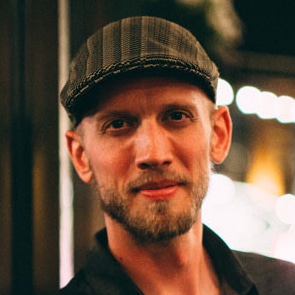Researcher Caitlin Fields explores how people decide whether to get the Covid-19 vaccine.
When the Covid-19 vaccine first became available, Caitlin Fields was puzzled. After a series of lockdowns, social distancing and masking, and hundreds of thousands of deaths from Covid, she struggled to understand why there was so much hesitancy and debate about getting a life-saving vaccine.
“It didn’t really make a lot of sense to me,” says Fields, a doctoral candidate at Midwestern University in Downers Grove. “Political ideologies seemed to play such a large role in whether people were masked or not, or whether people got the vaccine or not, that it was too large a phenomenon to ignore.”
The Centers for Disease Control and Prevention publishes data publicly on how many people have received the Covid-19, flu, and RSV vaccinations. In June of this year, about 22% of people over age 18 in the U.S. had been vaccinated against Covid-19.
And with the virus surging again — cases were up 250% in some areas in early July — we take a closer look at Fields’ research on vaccine reluctance.
Collecting data and setting a framework
To better understand Covid vaccine hesitancy, Fields turned to the online community Reddit. In 2021, she surveyed 113 Reddit users, gathering data on their social or economic views, social networks, education level, and whether they were likely to get vaccinated or not. The respondents’ average age was 30 years old.
With her co-author, Todd Doyle, PhD, a psychologist at Loyola Medicine, Fields analyzed the data, looking at why people make the choices they do in a particular area of life, such as whether to use a condom or start an exercise program. Fields says that three factors influence such decisions:
1) Whether the person has the ability or the means to get vaccinated. Can they get to a local clinic?
2) The choices of people around them. Are their family and friends getting vaccinated?
3) Whether they think the vaccine is good for them. A person’s level of conservativeness and political ideology play a large role in determining if getting vaccinated is positive or negative.
And the results…
Fields’ research showed that if people’s attitudes toward vaccines and their social circle was largely in favor of getting vaccinated, they would most likely get the vaccine too.
Fields also discovered an interesting correlation between one’s level of social conservativeness and perceived ability to get the vaccine. If a person was socially conservative and had access to the vaccine, they were more likely to get vaccinated. However, if a person who was more fiscally conservative had equally good access to get vaccinated, they were less likely to get a vaccine.
Basically, Fields says, “There’s so much variety and complexity in terms of why people get vaccinated.”
The National Foundation for Infectious Diseases keeps a list of 10 reasons that everyone should get vaccinated:
- Vaccine-preventable diseases have not gone away.
- Vaccines keep you healthy.
- Vaccines are as important to your overall health as diet and exercise.
- Vaccination can mean the difference between life and death.
- Vaccines are safe.
- Vaccines cannot cause the diseases they are designed to prevent.
- Young and healthy people can get very sick, too.
- Vaccine-preventable diseases are expensive.
- When you get sick, your children, grandchildren, and parents may also be at risk.
- Your family and co-workers need you.

Dan Dean is a writer, cancer survivor, and founder of Cancer Dudes, which supports men after being diagnosed with cancer.










